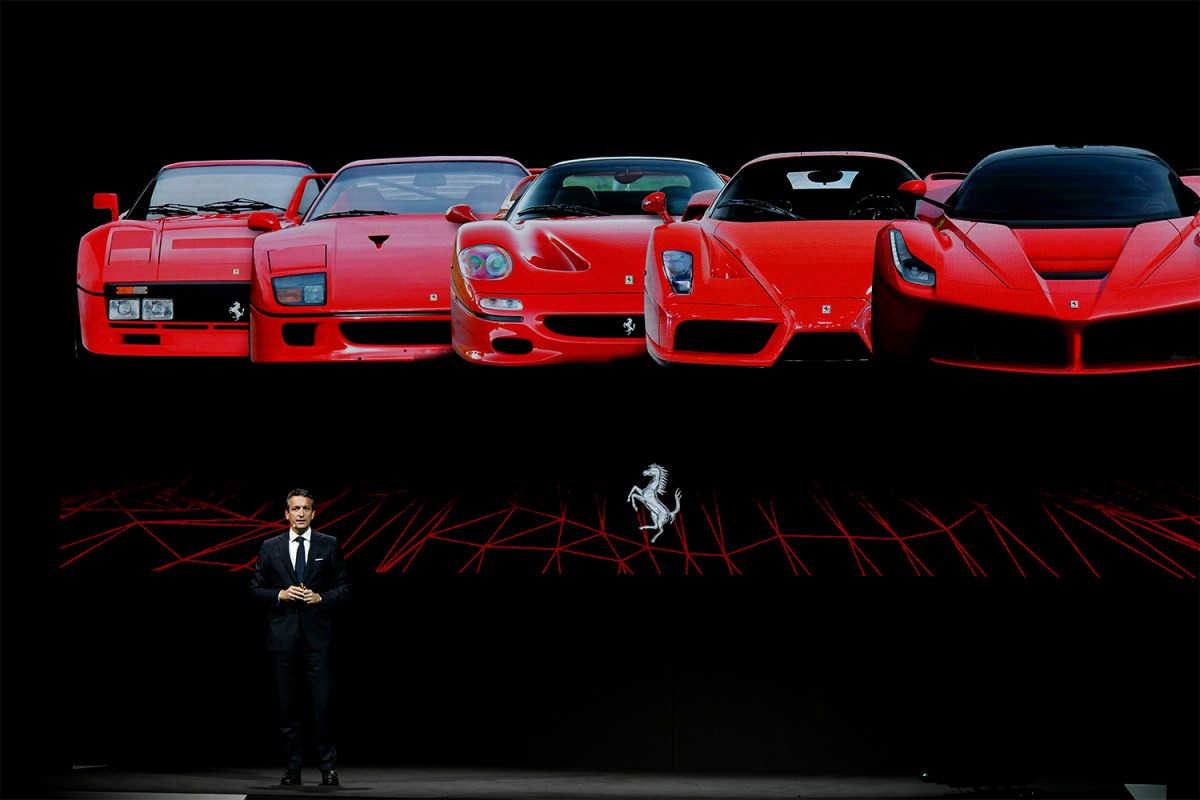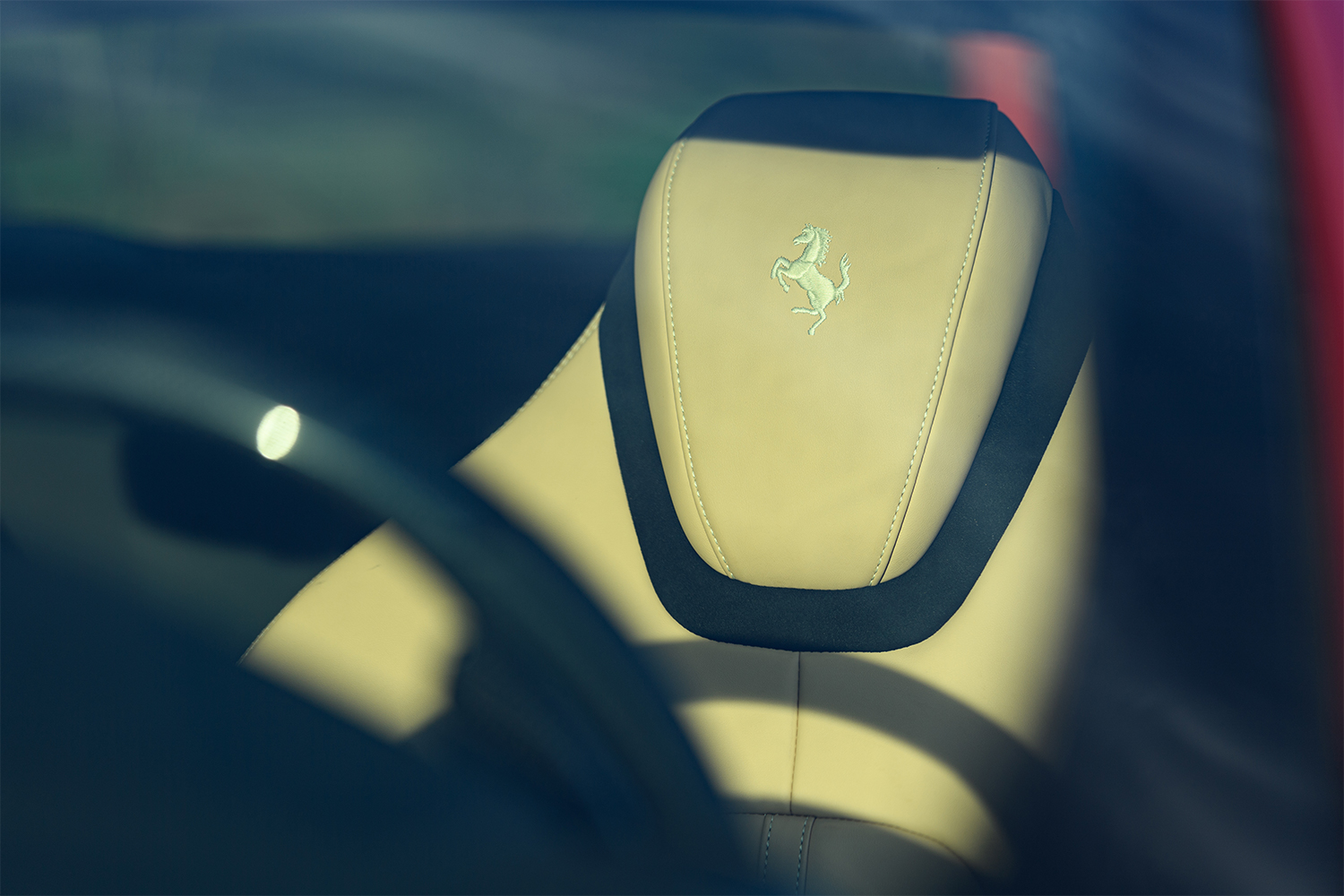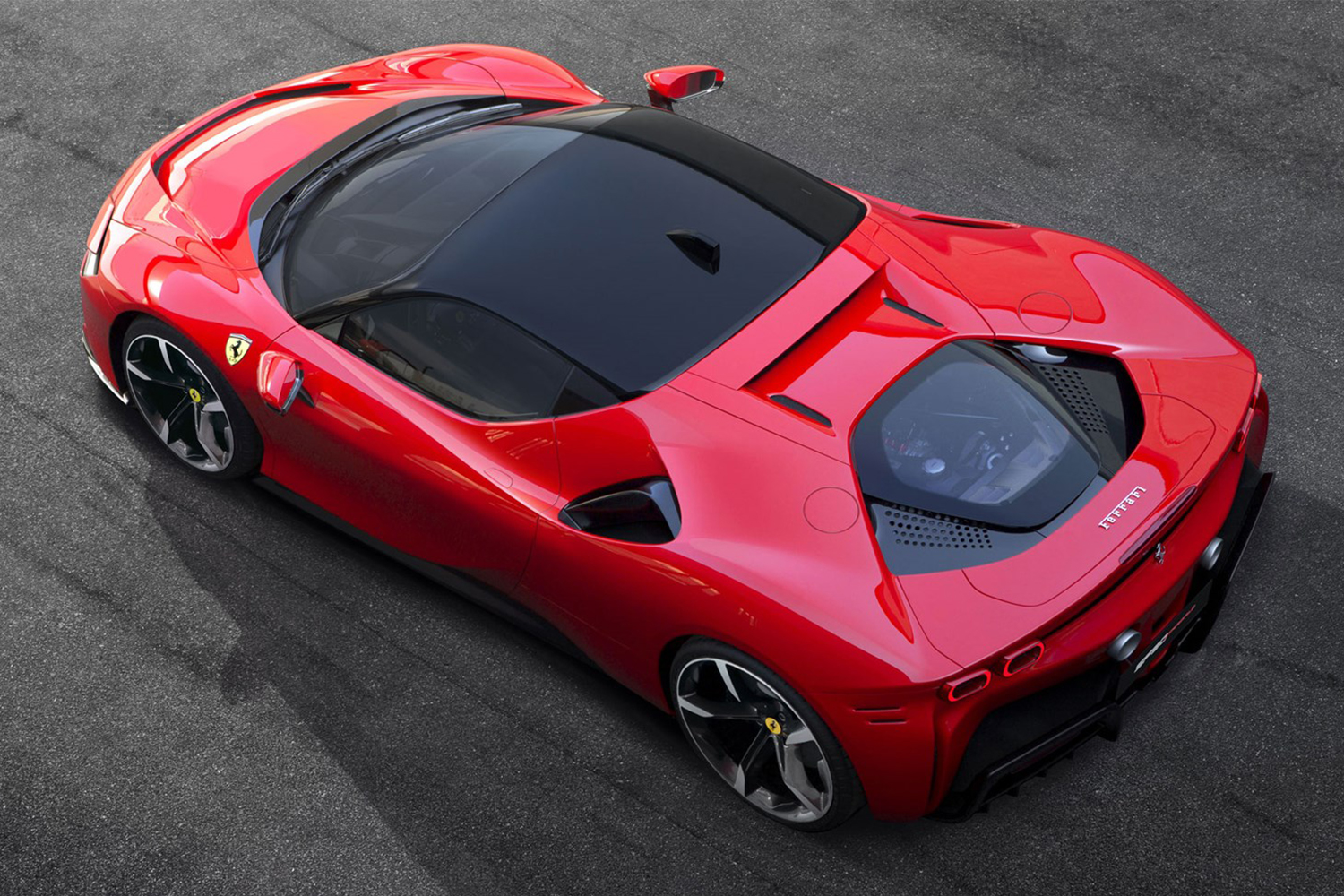In the past year, luxury automakers have been announcing their visions for the future of high-end motoring. Rolls-Royce sees a world of post-opulent coachbuilding. Bugatti sees life left in its 16-cylinder internal-combustion engine. Ferrari, meanwhile, is focused on something more mundane, an element that’s been mostly a blessing, but recently a curse, for car companies across the spectrum: semiconductors.
On Wednesday, Ferrari announced Benedetto Vigna will take over as chief executive officer of the historic Italian marque on September 1. As The Wall Street Journal reported, 52-year-old Vigna is currently a divisional president at French-Italian semiconductor manufacturer STMicroelectronics, where he has worked for 25 years. He was an unexpected choice to lead a company that’s built top-tier sports cars and race cars for decades, but the move comes as digital technology becomes paramount in automotive design, and as all-important microchips are experiencing a global shortage.
Semiconductors are responsible for all manner of modern automotive conveniences, from infotainment to cruise control to seats in the Porsche Macan SUV that can be adjusted 18 ways, as The New York Times noted. But these chips are currently in short supply, as the paper discussed, which has caused automotive production to slow even as demand increases as the economy recovers.
While the chip shortage is expected to continue for months, as The Wall Street Journal wrote, Vigna is being brought in at Ferrari not to deal with this current crisis, but rather to deal with the more existential crisis of the marque transitioning into an electric and tech-focused future.
“Mr. Vigna will be tasked with charting Ferrari’s path toward electrification,” the Journal reported. “The shift is consuming the energy of the entire industry, but it is a particularly pressing issue for Ferrari, which has long distinguished itself through its powerful motors. It isn’t yet clear how successfully it can shift to a new-look auto industry, where batteries and computer code supplant the internal combustion motor.”
While Vigna has some tangential car experience, working partly with the automotive industry during his time with STMicroelectronics, he’s not what you’d call a car guy. Enzo Ferrari, who founded the automaker, most certainly was, having been a race car driver before he started the now iconic Italian company. But Vigna follows Louis Camilleri, who served as CEO from 2018 to 2020, a former tobacco executive, so he won’t be the first person to come in with little car experience.
“In his role as CEO Mr. Vigna’s priority will be to ensure that Ferrari continues to build on its leadership position as the creator of the world’s most beautiful and technically advanced cars,” the company said in a press release. “His unique knowledge gained over 26 years working at the heart of the semiconductor industry that is rapidly transforming the automotive sector, will accelerate Ferrari’s ability to pioneer the application of next generation technologies.”
When will we see this next-gen tech? As John Elkann, Ferrari chairman and interim CEO, said earlier this year, the first all-electric model will likely arrive in 2025.
Thanks for reading InsideHook. Sign up for our daily newsletter and be in the know.

















